For those of you who can’t get the sleek mid-century style of Mad Men out of your mind, Providence, RI’s Emporium of Popular Culture will fulfill your wildest fantasies. It’s off the beaten path as far as Providence’s tourist impulses go—rather than strolling along the downtown financial district or by the river, the path to the Emporium of Popular Culture winds its way under the highway overpass and beneath the Providence Place Mall, followed by a series of empty-looking industrial streets to the unremarkable warehouse building that holds Darren Hill’s unique contribution to the culture of the city.
The Emporium of Popular Culture is the mid-1900s vintage treasure trove from beyond your wildest dreams. It’s part knickknacks and furnishings, part art gallery and music venue, all lovingly arranged and curated and well-maintained. Owner Hill describes himself as a lifelong collector: “When I was young […] I’d find discarded items that I thought were cool and would drag them home and clean them up. I built collections of things that I could afford – baseball cards, beer cans, stamps[…] I used to ask friends and relatives if I could look through their basements and attics for stuff. I began to develop an affinity for things that told a story or had historical/cultural significance.” After a music career that took him all over the world, and side hops into vintage and junk stores that found his home “bursting at the seams,” to the point where “I just couldn’t keep it all anymore, let alone enjoy it,” Hill decided to share his collection with the world—by displaying and by selling his findings.
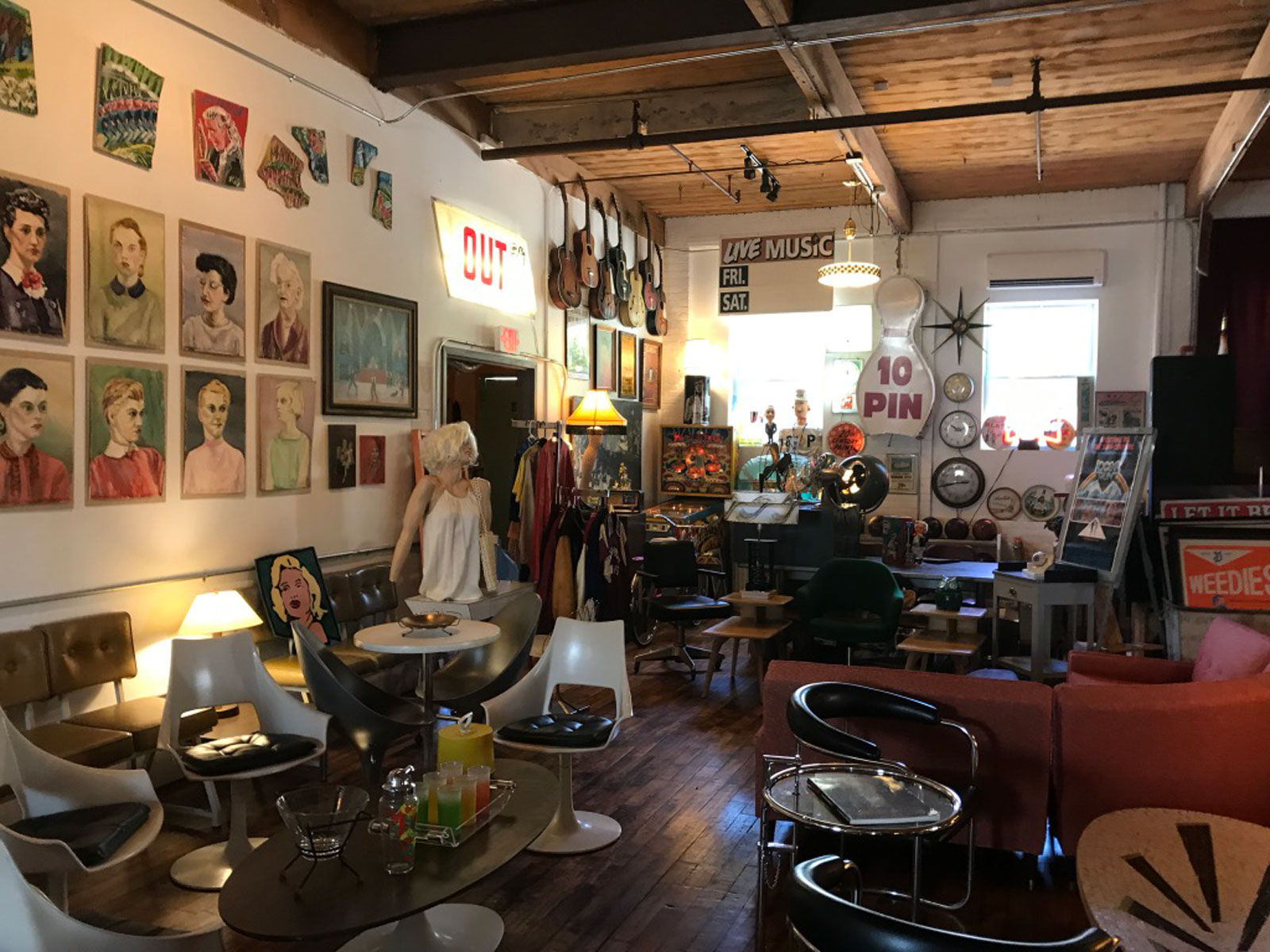 |
| Emporium of Popular Culture in Providence, Rhode Island. Photo courtesy of Deborah Krieger. |
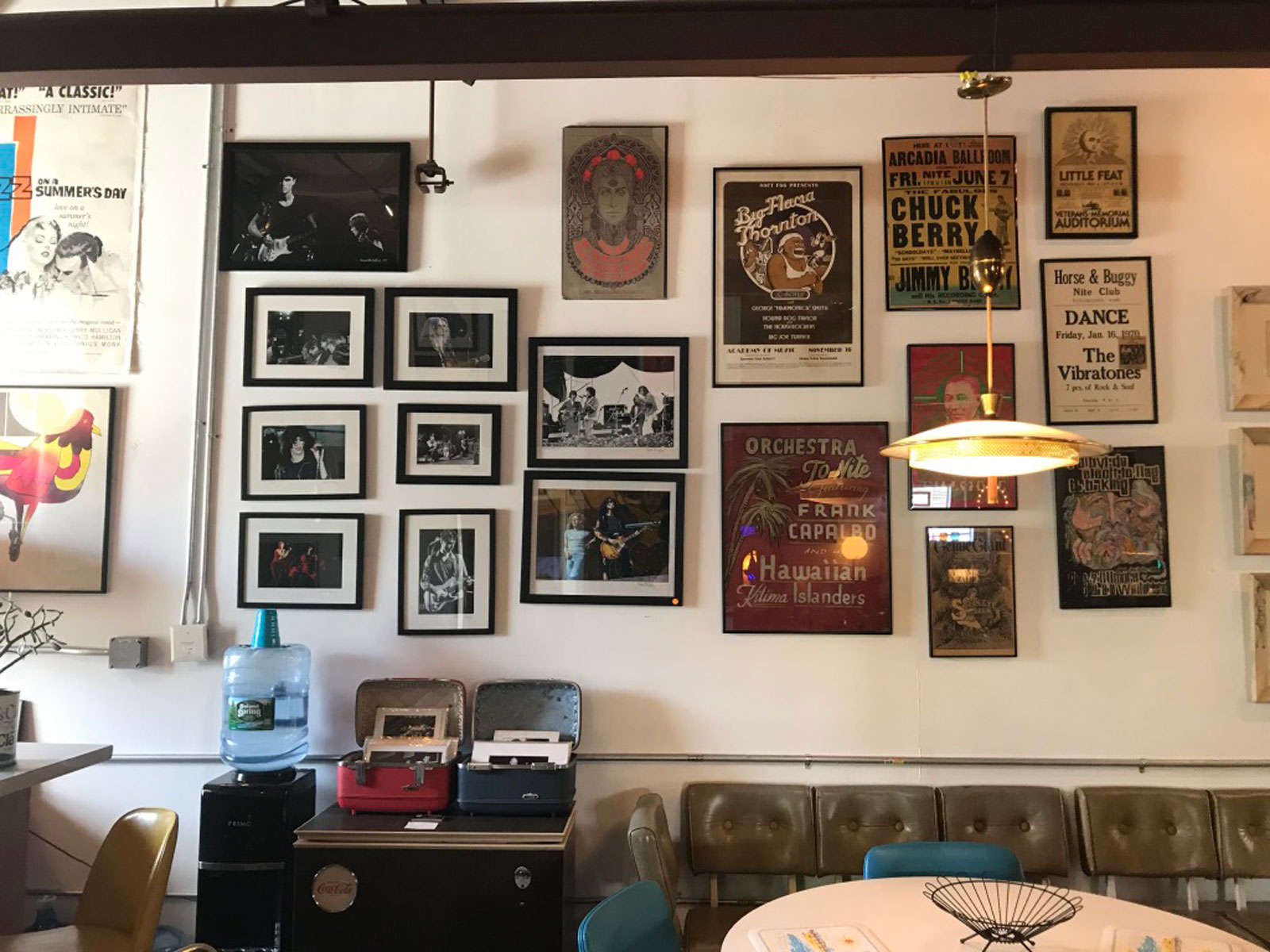 |
| Emporium of Popular Culture in Providence, Rhode Island. Photo courtesy of Deborah Krieger. |
The Emporium of Popular Culture has grown since its original location in an 850 square-foot storefront in East Greenwich, RI. Its current warehouse-sized space (totaling 10,000 square feet), which it’s been occupying for the past three years, is divided into two rooms: one largely, but not exclusively dedicated to higher-end furniture and paintings and wall art, perhaps a little more glitzy showroom than junk shop; the other a more expected but no less staggering smorgasbord of books, posters, memorabilia, records, televisions, lunchboxes, taxidermy, and even some local Rhode Islandiana. There’s the expected mini-cluster of Beatles memorabilia, located just by a collection of JFK posters, a life-size sculpture of Michelle Pfeiffer’s Catwoman, a charming pink-themed shrine to postwar girlhood, featuring a pink television, pink bowling ball, and heartthrobs like Liberace. (Recently, Hill mentions, he sold Steve McQueen’s director’s chair from The Thomas Crown Affair. “That was pretty cool and wish I still had it. Like I said, I can’t keep it all!”)
While the air is the same musty, leather-heavy smell of vintage stores, there’s enough to look at that you hardly notice. The couches and chairs are clustered together according to hue, giving you the full spectrum of the rainbow in twentieth-century American furniture and interior design–from the classic and lingering to the quirky and odd. (Spotted, for instance: a television with a rounded, globe-like screen that clearly didn’t last on the market for long.) It’s all part of transporting you into a place where the sleek designs and hallmarks of American twentieth-century consumer culture are collided and crammed into one single point in the universe, unencumbered by the artificial floral scents of Glade or Febreze. And the surfaces of the low coffee tables, bookcases, and decorative ashtrays are free of dust—pointedly, Hill credits the work of his wife in keeping everything pristine: “I don’t want to be a junk shop.” (His home does not reflect the stuffed-full condition of the Emporium, representing a balance between his love of the retro and her Minimalist preferences.)
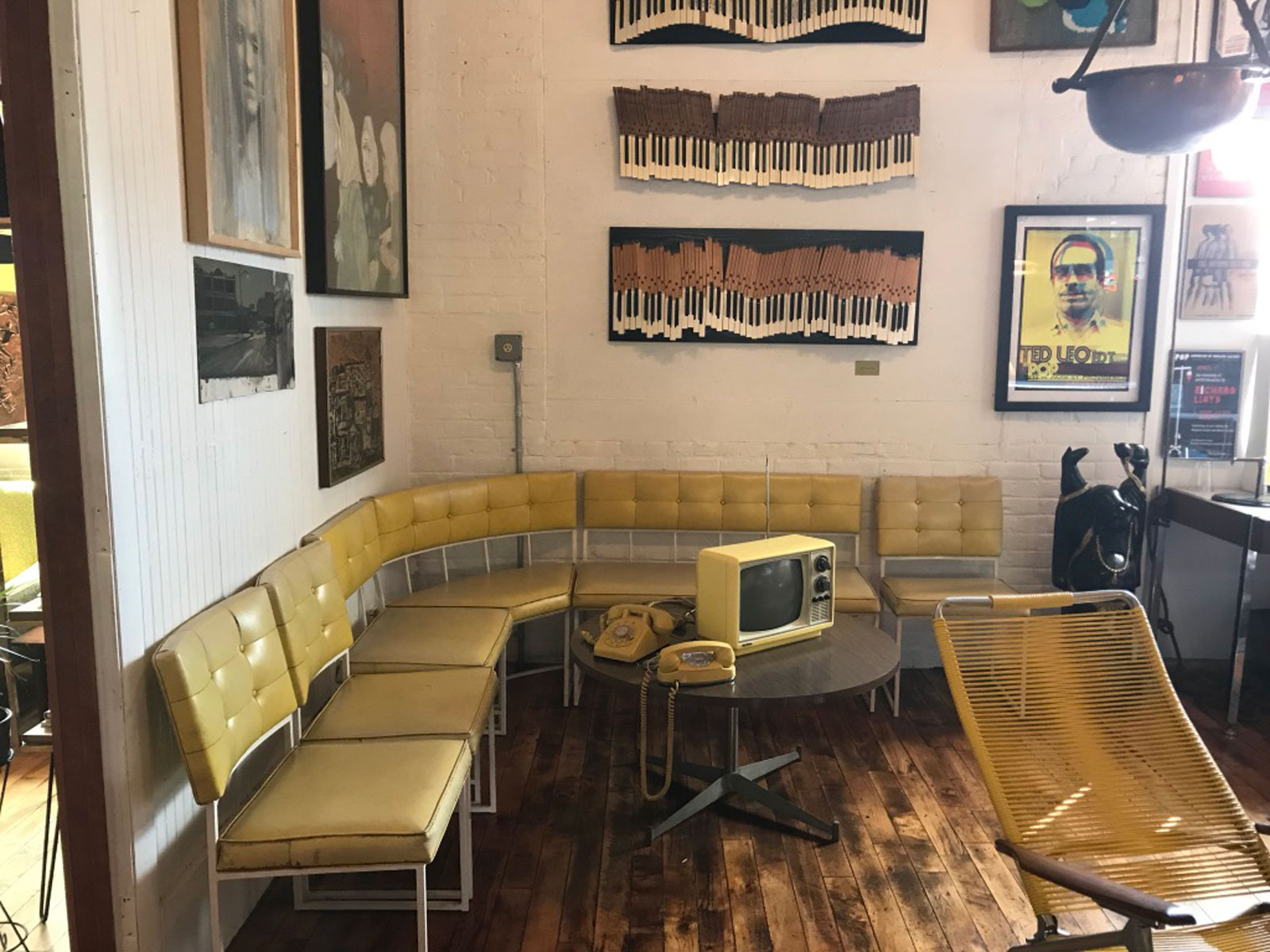 |
| Emporium of Popular Culture in Providence, Rhode Island. Photo courtesy of Deborah Krieger. |
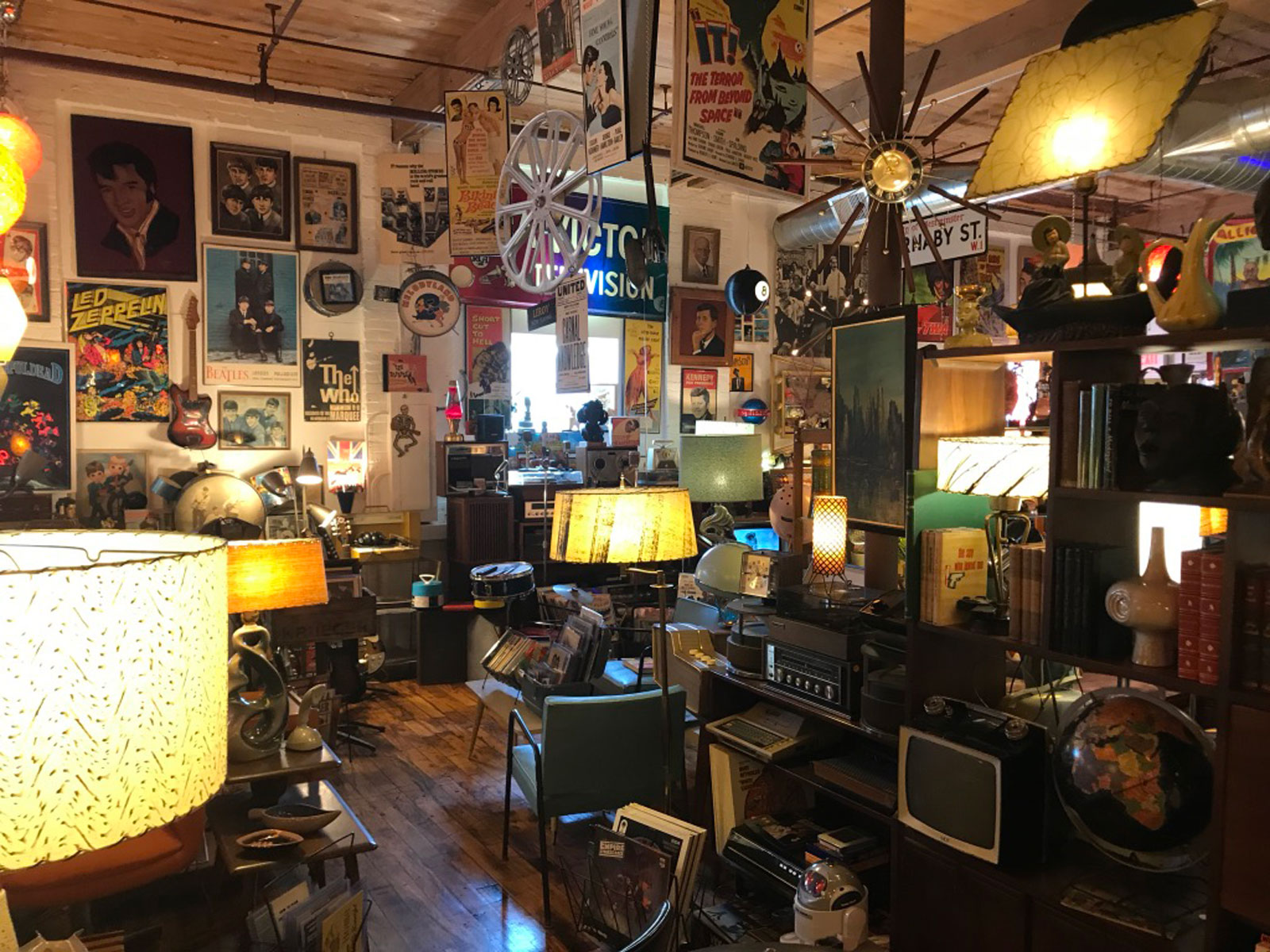 |
| Emporium of Popular Culture in Providence, Rhode Island. Photo courtesy of Deborah Krieger. |
Hill describes himself as always having been fascinated by mid-century Americana. He says, “that was the time period that I grew up in. I consider it to be the pinnacle period of art, design, and innovation. The apex of American civilization. It was a time of great optimism and excitement for the future – which really appeals to me. It was also a simpler time. The design and style from that era is classic and timeless.” He also cites the craftsmanship and care devoted to the manufacturing of the mid-1900s, pointing out, “the furniture I sell has been around for 40 – 70 years and will last forever. You can buy knock-offs everywhere, but that stuff is mass produced in China and [will] end up in a landfill in a year or two. Why not buy an original that is cheaper, better built, and won’t hurt the environment?” As for potential pitfalls of dealing with content from a different time—that common decorative objects from earlier eras might have racist or sexist underpinnings to them—Hill states, “Some of the objects in POP might be considered offensive on the surface–racist, sexist, intolerant, et cetera. However, they are all works of art – good, bad, and ugly–or have historical significance–good, bad, or ugly. They all tell a story.” (For the record, I spotted at least one table sculpture that appeared to be in the racist “Blackamoor” vein.)
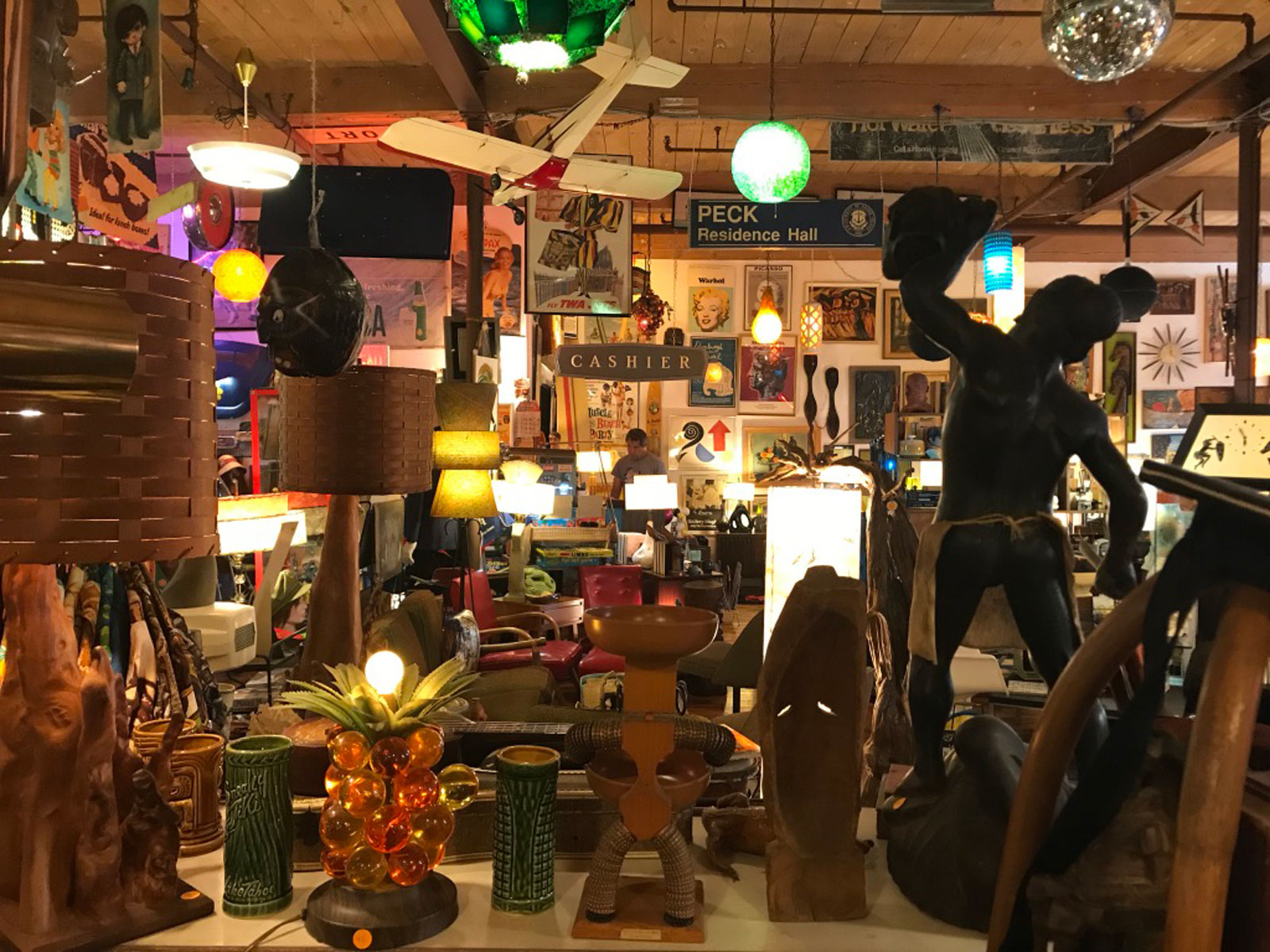 |
| Emporium of Popular Culture in Providence, Rhode Island. Photo courtesy of Deborah Krieger. |
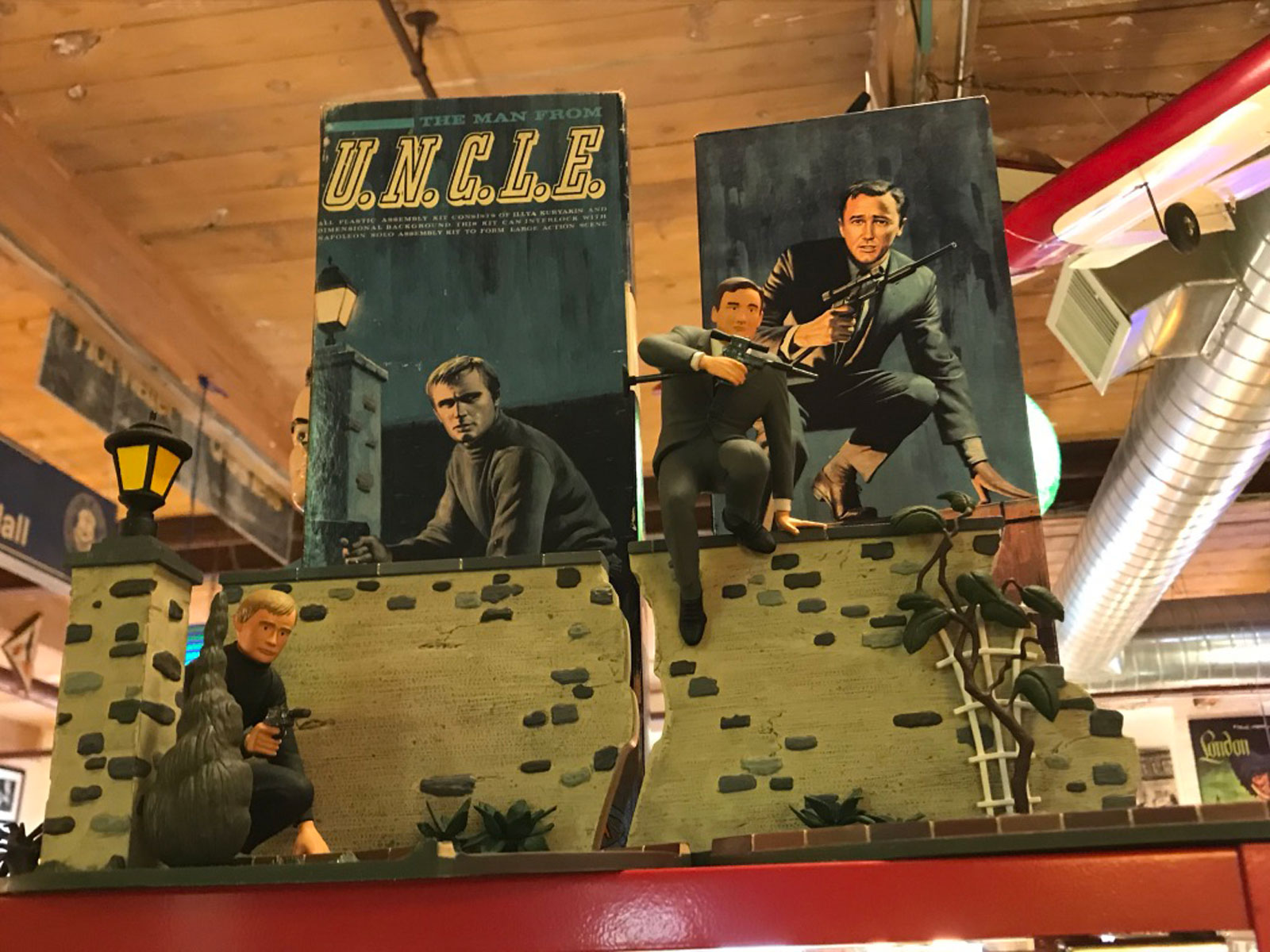 |
| Emporium of Popular Culture in Providence, Rhode Island. Photo courtesy of Deborah Krieger. |
The Emporium of Popular Culture is also, as Hill puts it, “a collective incubator of sorts” for arts and music. His Rolodex (his term, not mine) is packed-full of the artist and musician contacts he made over his long career as a traveling musician, and he notes that “my friends can easily be talked into doing an ‘underplay’ in a unique venue with an interesting spin.” Accompanying the sounds on the low stage with the purple curtain backdrop is often a selection of works by artists. Around Thanksgiving of this year, Hill says, he’s paired a show of paintings by Massachusetts-based Tom Deininger with music from the New York-based ambient quintet Suss.
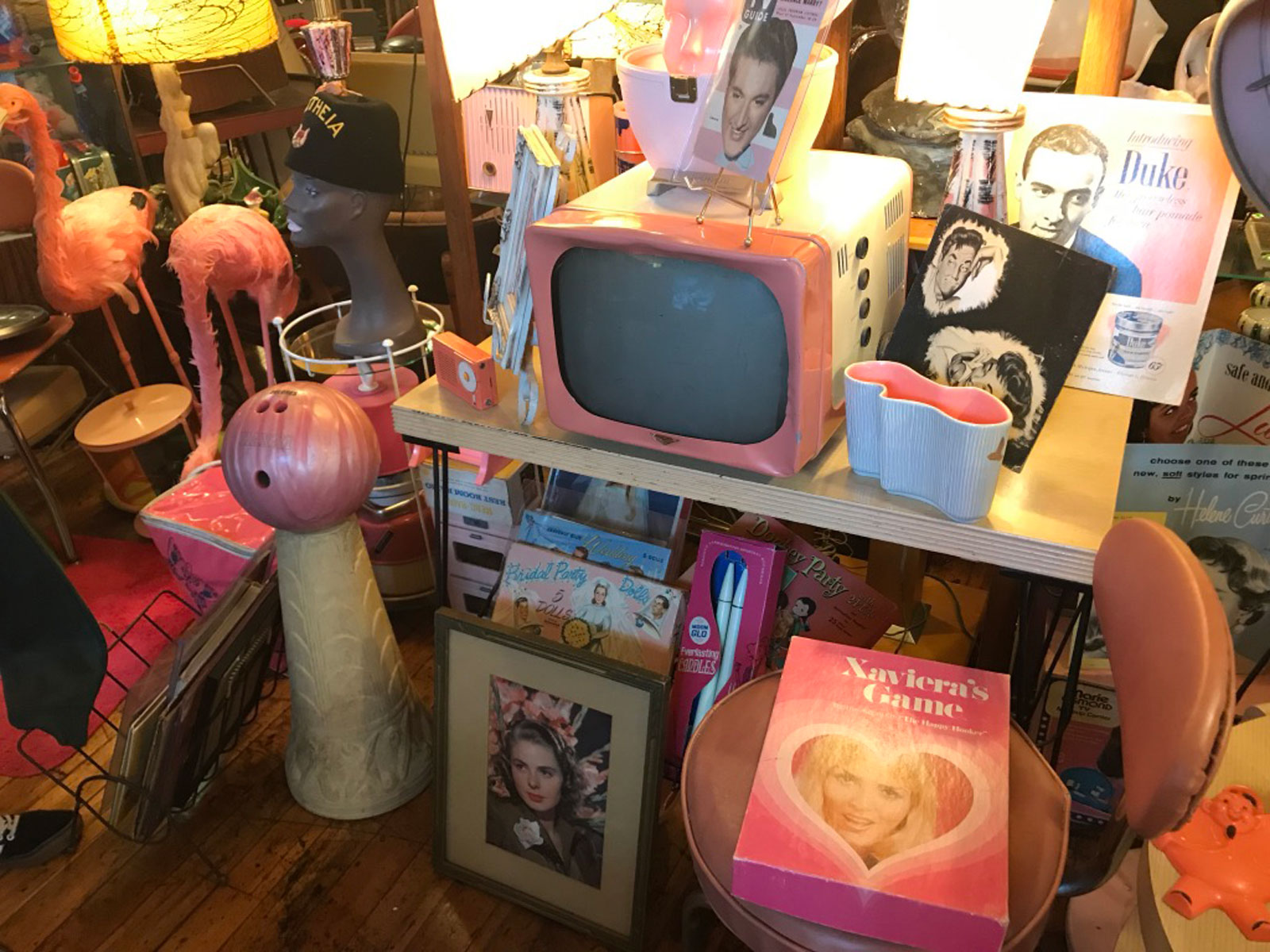 |
| Emporium of Popular Culture in Providence, Rhode Island. Photo courtesy of Deborah Krieger. |
The Emporium of Popular Culture is still a living, breathing collection—“a work in progress”—with new items coming in regularly from flea markets, from estate sales, and from individuals bringing him incredible objects. “Every single piece” in the Emporium “has a unique story to tell,” and Hill wants objects—be they furniture, art, or even strange, chimera-like taxidermy—that will best tell a story. How does Hill decide if a piece is right for his Emporium? Put plainly: “the objects ‘speak to me’– that’s how I know.”







Comments
Post a Comment